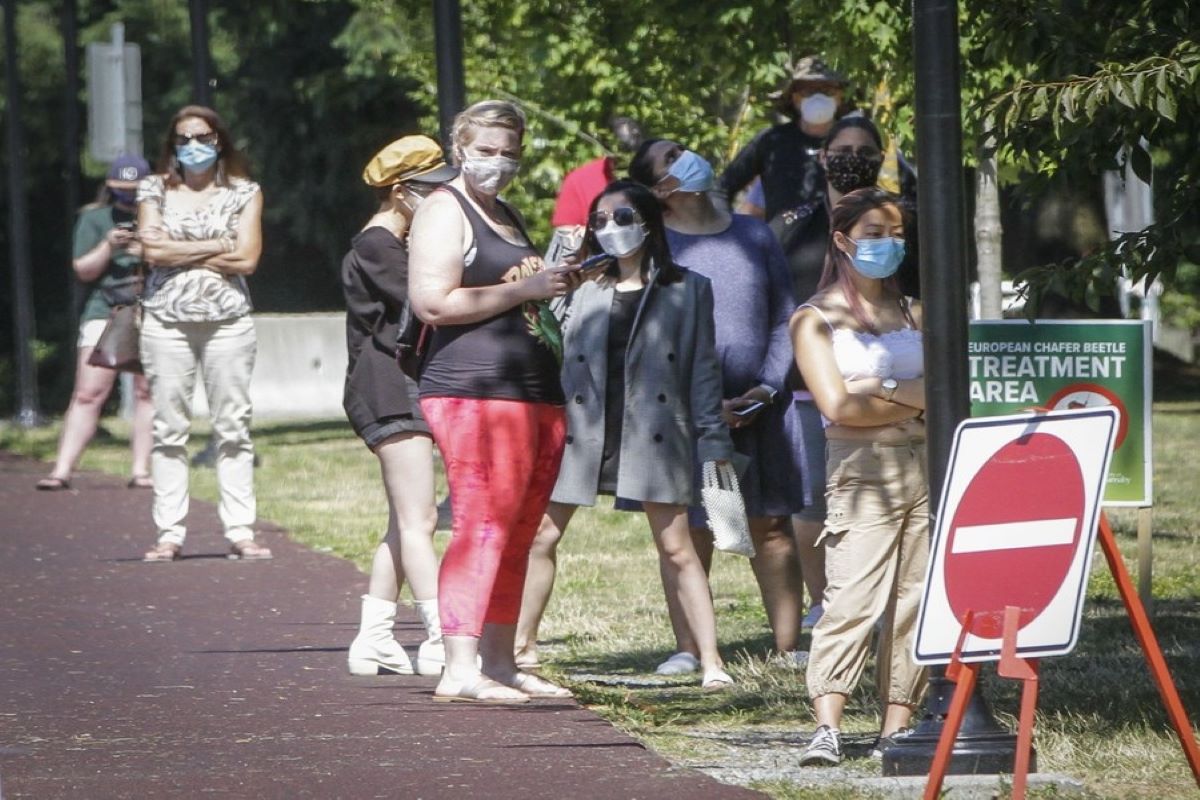The number of Covid-19 deaths in Canada is ostensibly double the official figures, reveals an investigative report published by the Royal Society of Canada on Tuesday.
Till now, Canada has reported a total of 1,414,158 Covid-19 cases, including 26,238 deaths.
Advertisement
The report, called “Excess All-Cause Mortality During the Covid-19 Epidemic in Canada”, suggests that largely racialised communities and essential workers have died at home and therefore excluded from the official count.
But Canada has reported that its fatalities are largely concentrated in long-term care homes.
The investigation reviewed death reports in 2020 and compared them to the expected number of deaths in a normal year, finding some 6,000 extra deaths among those aged 45 and above between February and November 2020.
Assuming this pattern of missing deaths continued after last November, it’s possible that as much as 50 per cent of deaths remained out of the official count and that instead of over 26,000 Covid-19 deaths Canada’s death toll may be around 52,000, the report suggests.
“They weren’t recognized as Covid-19 deaths, for whatever reason, and there are quite a number of possibilities and they vary by province,” Tara Moriarty, an infectious disease researcher with the University of Toronto and one of the authors of the report said.
“What it really looks like right now is that the Covid death toll is very likely to be double what we think in all regions outside of Quebec, (which) is probably accurate,” Moriarty said.
The report detailing this enormous oversight is a complicated indictment of Canada’s response to Covid-19, exposing a failure to test, report deaths consistently, and to pay attention to marginalised communities.
Moriarty said she started to realise something was off while she was tracking long-term care deaths in Canada.
“I was looking at things like the case for case fatality rates in Canada, and the numbers didn’t seem quite right,” she said. “Over time I started realising that, in fact, there were quite a few more deaths than we had expected and so it took months to sort of be sure that what I was seeing was likely Covid-19 deaths.”
She said that researchers adjusted for an aging population as well as the number of deaths due to toxic drugs, and still found a disparity in the excess deaths.
Right now, the official data for Covid-19 deaths in Canada suggests that about 80 per cent of Covid-19 deaths occurred in long-term care homes.
But the report says that’s wrong – like most other countries, two-thirds of Canadian deaths likely happened outside of long-term care homes, when the elderly living at home and lower-income racialised frontline workers became ill.
“That suggests that people have been dying in their homes, unrecognized, with Covid-19,” Moriarty said. “And for them and their families for everyone, we need to understand exactly how that could have happened because that’s actually quite horrifying.”
She said that Canada should’ve known from data from other countries that something was off about our numbers.
The report also cited a study that looked at cremation records in Ontario in 2020 and found that there was a rise in at-home deaths, with 63 per cent of excess deaths occurring there as opposed to only 30 per cent in long-term care homes.
“We know that twice as many Covid-19 deaths, for example, have occurred in racialised communities, communities that have lots of essential workers, high-density apartment buildings, larger households,” Moriarty said, adding that those receiving home care were a population overlooked as well.
One of the problems that led to these deaths failing to be counted, according to the report, is that Canada tested 75 per cent less than the average for Canadian peer countries early on in the pandemic, missing cases until doctors spoke up, recognising atypical symptoms.
Another contributing issue in having accurate death records is that Canada’s requirements for filing death reports are lax.
“Every one of our peer countries legally requires deaths to be recorded nationally within a week of them occurring,” Moriarty said. “Canada is months to years behind – we don’t have any requirement for that.”
She pointed out that there is still incomplete data even now. “We don’t have complete cause of death reporting in many provinces past February 2020, June 2020.”
The report pointed out that if a person died mysteriously and had symptoms clinically similar to Covid-19, if they did not have a known close contact who had the disease, their death would not be considered to be connected to Covid-19 unless a post-mortem was done to confirm the cause of death.
It’s imperative for Canada to learn from these uncounted deaths, Moriarty said, adding that Canada could still be undercounting deaths right now. “This could be very important as the Delta variant spreads.”











